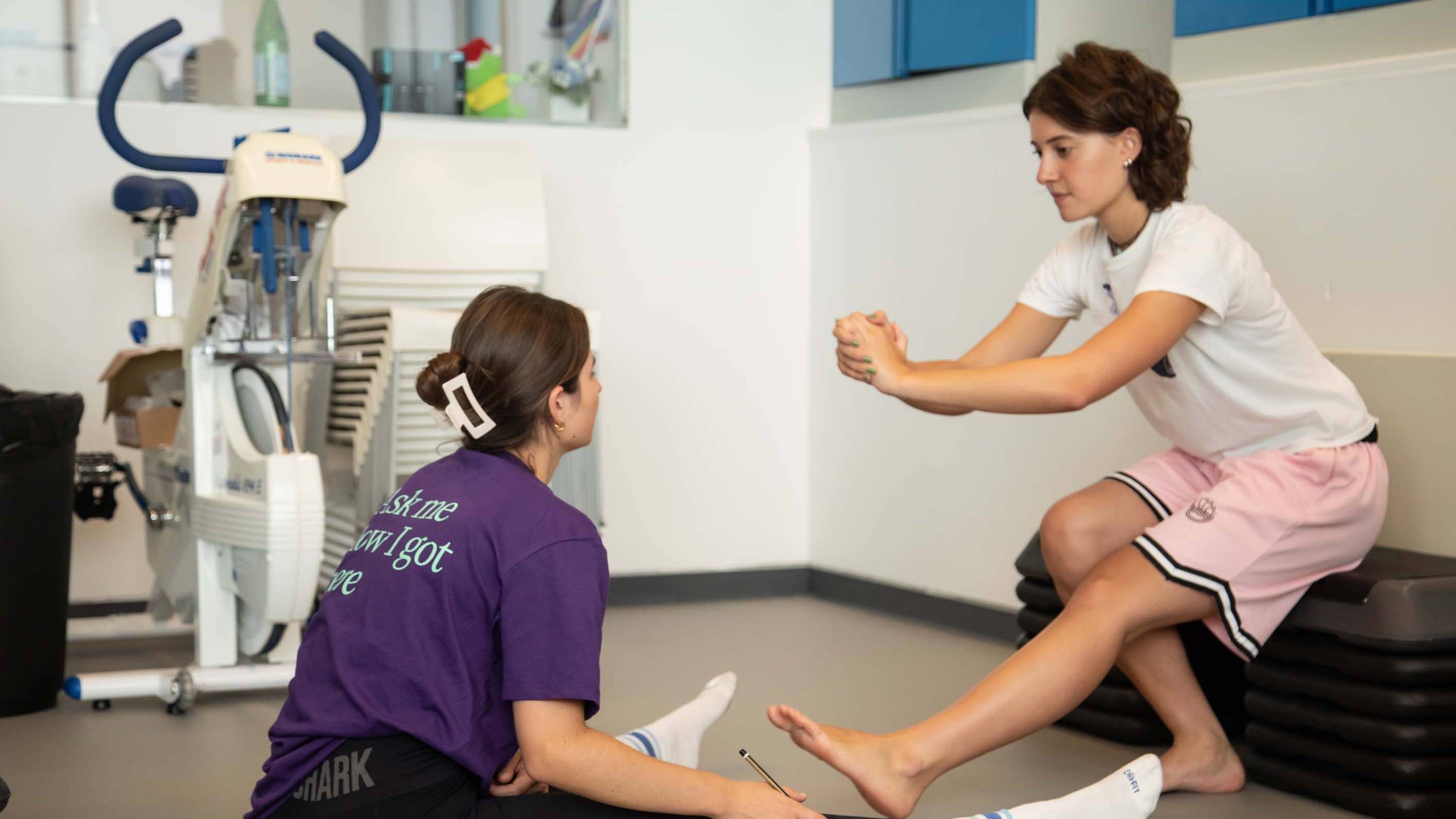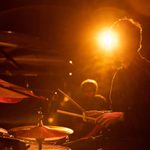
MSc/MFA Dance Science
Course details
Introduction
Trinity Laban launched the world’s first Masters degree in Dance Science in 2001 and has been a pioneering force in the field ever since. Come and join a collaborative global community and find your place in the rapidly expanding field of Dance Science.
MSc Dance Science is a research-focused course, where you’ll use scientific approaches to understand and investigate dancers and dance practice across recreational, training and professional settings. Studying MFA Dance Science, you’ll be immersed in a 2-year research-focused postgraduate course, broadening the possibilities of dance science research and study. The diversity of experience and backgrounds of both students and faculty makes it a thriving and organic learning environment.
You’ll explore topics ranging from physiology, biomechanics, psychology and nutrition, and engage with scientific and creative modes of research. You’ll bring relevant experience in dance – whether as a dancer, choreographer, scientist, teacher, lecturer or health practitioner – and a strong motivation to deepen your knowledge of dance science.
Studying Dance Science at Trinity Laban will develop your applied research skills and give you the opportunity to conduct research in studio and lab-based contexts. It is also a collaborative programme, and you’ll have opportunities to work with students on other postgraduate programmes.
The Masters in Dance Science is a one-year (full time) or two-year (part time) course. On the MFA Dance Science, your first-year shares module content with students on MSc Dance Science, whilst an extended independent project forms your second year, giving you the opportunity to direct your learning through extended research. The blended-learning programme offers students a flexible and autonomous learning environment, integrating both online and in-person learning.
Key Features
This course is designed to assist professionals, practitioners and graduates from both dance or science related areas to investigate the intersections between science and dance. We tailor teaching to your specific interests and career goals to enhance your understanding, application, and dissemination of dance science research in the context of dance practice and performance.
Our Dance Science team is internationally known in the field and work with professional companies and organisations around the world. Trinity Laban is a founding partner of the National Institute of Dance Medicine and Science (NIDMS) and a supporter of the International Association for Dance Medicine & Science (IADMS).
MSc/MFA Dance Science at Trinity Laban is likely to appeal to you if you want to pursue a career in higher education, especially where a terminal degree is required. Our graduates go on to become consultants for dance companies, training institutions and national dance organisations. Some pursue further study at PhD level. Others use their dance science knowledge to inform their practice as dancers, teachers, rehearsal directors or choreographers.
Our team is internationally known in the field and work with professional companies and organisations around the world. Trinity Laban is a founding partner of the National Institute of Dance Medicine and Science (NIDMS) and a supporter of the International Association for Dance Medicine & Science (IADMS).
Our in-house Fitness Screening & Health Tracking Programme and departmental research projects give you the opportunity to gain valuable experience of working as a dance scientist while you study. Our specialist facilities include a versatile testing laboratory with dedicated support staff, a specialist dance library and 12 dance studios.
The MSc/MFA in Dance Science will set you up for various career pathways. The course provides a strong foundation for students who want to pursue a career in higher education, such as lecturers, researchers, or doctoral studies in dance science. Trinity Laban graduates have also gone on to work as consultants for dance companies, training institutions and dance organisations; while others have used the dance science knowledge and skills gained to enhance their practice in the field, as dancers, teachers, rehearsal directors, choreographers, clinical practitioners, fitness instructors, or business owners.
Key Facts
- UCAS
- MSc 801F (Full-time), 804P (Part-time) / MFA 500M (Full-time)
- Duration
- MSc 1 year (Full-time), 2 years (Part-time) / MFA 2 years (Full-time)
- Location
- Laban Building
- Start Date
- Sep 2025
Fees
Audition fees
There is no audition fee for this course. You will need to pay the UCAS Conservatoires administration fee of £28.50 for the 2025 entry cycle.
Key Dates
-
Applications open on UCAS Conservatoires
-
On Time UCAS Conservatoires Deadline (Late applications will be considered)
-
Postgraduate Spring Application Deadline
-
Registration & Welcome Week
-
Autumn Term 2025
-
Spring Term 2026
-
Summer Term 2026
Detailed Information
You’ll engage with qualitative, quantitative, and mixed modes of research, preparing you to translate theory and skills to practice. You’ll experience a variety of flexible learning and teaching methods, including webinars, seminars, digital and practical workshops, group and individual tutorials, mini-conference days, studio-and lab-based application, as well as independent and self-directed work.
Modules on the course cover Foundations in Performance Science, Approaches to Performance Research, and Performing Research 1 & 2, where you will get hands-on experience conducting research with performing artists in the laboratory and the studio.
To dive deeper into personal areas of interest, the Applications in Dance Science provides a selection of choices: Movement & Technique Analysis, Strength & Conditioning in Dance, Performance Psychology, Dance Training & Education, and Arts & Health.
During your studies, assessments are specifically designed with your employability skills in mind, aiming to reflect the knowledge and skills required of graduates entering the dance science sector. These tasks include a multidisciplinary dance science portfolio, developing a project proposal, group project lab reports and designing and delivering a Dance Science workshop.
The MSc Dance Science consists of approximately 1800 notional learning hours.
The MFA Dance Science consists of approximately 2600 notional learning hours.
Entry Requirements
To study with us you’ll need to:
Have an appropriate first degree (or an equivalent qualification) or 5 years’ professional experience in a relevant discipline.
We will follow the Institution’s Recognition of Prior Learning (RPL) process, if you don’t meet the standard entry requirements.
For the MFA, you’ll need to demonstrate your capacity to undertake independent self-directed research over an extended period of time.
Propose a research question that warrants the depth and breadth of an extended project timeframe.
English Language requirements (if applicable)
-
You will need IELTS Band 6.5 overall with a minimum of 5.5 in all four areas (General English Test) or above (or equivalents).
-
If you require a Student visa to study in the UK, please be aware of its English language requirements, as they may differ. Secure English Language Tests and levels can be found at gov.uk. Meeting external requirements of UK Visas and Immigration is essential.
How to Apply
First, you need to register with and apply through UCAS Conservatoires. Please use Conservatoire Code T75.
The Programme Codes are:
MSc Dance Science, Full-time: 801F Part-time: 804P
MFA Dance Science, Full-time: 500M
Here you will be asked to submit your Personal Statement
Create an account on Embark to submit your supplementary material. This incudes:
Dance Science Writing Supplement
The Writing Supplement includes a Personal Statement and Academic Writing. You can download this supplement here.
NOTE: If you are only applying to Dance Science programmes, the Personal Statement may be the same as your UCAS Personal Statement. For applicants applying to more than one programme on UCAS, you may use the Personal Statement in the Writing Supplement to expand on your interest in Dance Science specifically.
If applying to the MFA Dance Science, MFA Proposal
The MFA Programme expands on the MSc curriculum through an additional research project. This provides students opportunities for further depth in research as well as further opportunities to expand and refine high-level skills in research and In approx. 800 words, please describe:
• Your motivation to carry out an independent project over one academic year.
• The qualities that make you suitable for independent extended research in the context of MFA Dance Science.
• Your intended Extended Project research area with preliminary design and drafted timeline













